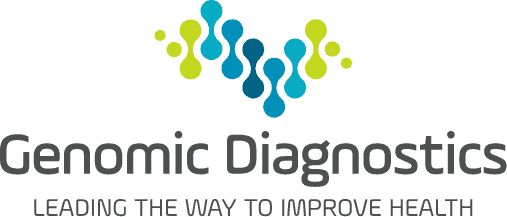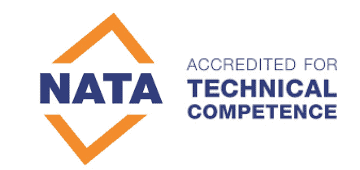Non-Invasive Prenatal Testing (NIPT)
The Generation suite of NIPT options incorporates Generation, Generation 46 and Generation Plus.
Generation NIPT is a highly accurate, non-invasive prenatal screening test, based on whole genome sequencing (WGS) with proprietary algorithms. The test analyses circulating cell-free fetal DNA, detected from a maternal blood sample, with testing from as early as 10 weeks gestation.
The clinical utility and benefit of the Generation test has been demonstrated in all pregnant women – regardless of age or risk category – in multiple published studies of thousands of pregnant women, for both singleton and twin pregnancies. Clinical best practice guidelines from Australian and international medical societies recommend that all pregnant women, regardless of risk status, should be offered the opportunity for discussion and choice regarding NIPT.


Test Details
| SYNDROME |
GENERATION $425 |
GENERATION 46 $449 |
GENERATION PLUS * $799 |
|
|---|---|---|---|---|
| Trisnomy 21 | Down | |||
| Trisomy 18 | Edwards | |||
| Trisomy 13 | Patau | |||
| Chromosomes 1 - 22 Aneuploidies | - | - | ||
| Specific Sex Chromosome Aneuploidies | ||||
| Rare Autosomal Aneuploidies (RAA) | - | - | ||
| Subchromosomal Aneuploidies > 7Mb | - | - | ||
| Microdeletions of 22q11, 15q11, 1p36, 4p and 5p | DiGeorge, Angelman/Prader-Willi, 1p36, Wolf-Hirschhorn, Cri-du-chat syndromes | - | - | |
| Fetal Sex |
- Ultrasound imaging suggestive of a specific microdeletion syndrome.
- Previous history of a pregnancy diagnosed with, or a child affected with, one of these conditions.
The Generation Plus test is performed in an accredited laboratory in California and has a longer turnaround time (11 – 15 business days) than other Generation options.
This test is not recommended in an unselected/low risk cohort, where the Generation or Generation 46 screen should be considered instead. It is recommended that testing for microdeletion syndromes is accompanied by specialised genetic counselling.
Features of Generation
A single tube of blood drawn from the patient from 10 weeks gestation.
Reliable – Whole genome sequencing has been demonstrated to have the lowest test failure rate.
Genetic Counselling is available for those patients where high risk results due to specific aneuploidies are detected (upon request by the healthcare practitioner), so they can better understand their results, the options, and their implications.
Blood can be collected in most of our collection centres around Australia.
NATA/RCPA accredited laboratory.
The Generation suite of tests can be exclusively bundled with other advanced scientific services such as cord blood stem cell banking.
Results for Generation and Generation 46 are reported 3 – 7 business days, and for Generation Plus are reported 11 – 15 business days, from sample arriving at the testing laboratory.

Frequently Asked Questions
We attempted to provide many of the details around the Generation suite of NIPT tests. Please do not hesitate to contact us to discuss any further queries you may have.
NIPT for fetal chromosomal aneuploidies has the highest detection rate and lowest false positive rate of available prenatal screening methods. Combined with the lowest reported failure rate, Generation NIPT ensures that more patients will avoid invasive diagnostic procedures.
NIPT is a highly accurate screening test. This means that if there is a true chromosomal aneuploidy in the fetus, it is highly likely that it will be detected by NIPT. However, a more clinically useful statistic is the positive predictive value (PPV) which is the chance that a high-risk correctly identifies true aneuploidy in the fetus. PPV is different for every woman, and is determined by factors including maternal age, type of aneuploidy, and personal and family medical history. For example, the chance of Down syndrome following a high risk test result is 94% for a 40-year-old woman and 63% for a 30-year-old woman. This variability in PPV, due to biological and technical false positive results, means that diagnostic testing by amniocentesis or chorionic villus sampling is strongly recommended prior to making definitive decisions regarding further pregnancy management.
Genomic Diagnostics provides a free genetic counselling service to explain the individual risks to every woman who has a high-risk result.
| Test Name | NIPT- Generation |
|---|---|
| Clinical Indication | Screening for specific chromosomal aneuploidies of chromosomes 13, 18, 21 which cause known syndromes (Down Syndrome, Edward Syndrome, Patau Syndrome) from 10 weeks onwards |
| Gene(s) | Chromosomes 13, 18, 21, X and Y |
| Method | Whole Genome Sequencing (Illumina VeriSeq V2) |
| Turn around time | 3 – 5 days from sample arriving at the laboratory* |
| Medicare Eligibility | No |
| Sample Type | Blood – Streck Cell Free DNA BCT 10mL |
| Special Instructions | Generation custom request form required |
* For majority of samples performed. In some cases a longer turn around time may be observed.
| Test Name | NIPT- Generation 46 |
|---|---|
| Clinical Indication | Screening for specific chromosomal and subchromosal aneuploidies in all chromosomes from 10 weeks onwards. |
| Gene(s) | All chromosomes |
| Method | Whole Genome Sequencing (Illumina VeriSeq V2) |
| Turn around time | 3 – 5 days from sample arriving at the laboratory |
| Medicare Eligibility | No |
| Sample Type | Blood – Streck Cell Free DNA BCT 10mL |
| Special Instructions | Generation custom request form required |
| Test Name | NIPT- Generation Plus |
|---|---|
| Clinical Indication | Screening for specific chromosomal aneuploidies, as well as for specific sub-chromosomal imbalances (microdeletions) leading to known syndromes from 10 weeks onwards where there is a high risk of the known syndrome (e.g. a known previously affected pregnancy, or current pregnancy suspected of being affected based on ultrasound findings). |
| Gene(s) | Chromosomes 13, 18, 21, X and Y plus 5 microdeletion syndromes |
| Method | Whole Genome Sequencing (Illumina USA) |
| Turn around time | 9 – 13 days from sample arriving at the laboratory |
| Medicare Eligibility | No |
| Sample Type | Blood – Streck Cell Free DNA BCT 10mL |
| Special Instructions | Generation custom request form required. This test is not available for testing of twin pregnancies. Testing is performed in our partner laboratory in California, USA. |
The Generation test was chosen for development by Genomic Diagnostics based on a careful evaluation of its quality and proven scientific performance.
The performance of next generation sequencing-based NIPT has been evaluated and published in numerous major studies, including clinical experience in over 34,000 patients from over 60 leading US medical research and teaching institutions.
Those findings have been replicated in other studies which includes the New England Journal of Medicine, one of the most prestigious international medical journals. These studies have found that the test performed substantially better than conventional tests under regular clinical conditions, with 1 in 4,000 false negative results, 1 in 500 false positive results, and the lowest test failure rate of any non-invasive prenatal test.
Generation uses the most advanced Whole Genome Sequencing technology and research has shown this is the most sensitive method available for NIPT.
Fetal fraction (FF) represents the percentage of cell free fetal DNA in the mother’s circulation. Measurement ensures the placental DNA can be detected in the maternal plasma in sufficient quantities to generate a meaningful result. A number of factors can influence the level including fetal aneuploidy. Generation testing uses a dynamic threshold, which looks at FF in combination with other sample-specific information, which reduced NIPT failures while ensuring accurate calls. Generation reliably provides accurate results on samples with a fetal fraction of <2%.
- RANZCOG Statement on Prenatal screening and diagnosis of chromosomal and genetic abnormalities in the fetus in pregnancy C-Obs 59. Endorsed by RANZCOG: March 2015
- ACOG Committee on Practice Bulletins. (2007) ACOG Practice Bulletin No. 77: screening for fetal chromosomal abnormalities. Obstet Gynecol. 109(1):217-227.
- Society for Maternal-Fetal Medicine (SMFM) Publications Committee. #36: Prenatal aneuploidy screening using cell-free DNA. Am J Obstet Gynecol. 2015; S0002-9378(15)00324-5.
- Bhatt S, Parsa S, Snyder H, et al. Clinical Laboratory Experience with Noninvasive Prenatal Testing: Update on Clinically Relevant Metrics. ISPD 2014 poster.
- Bianchi DW, Platt LD, Goldberg JD, et al. Genome-wide fetal aneuploidy detection by maternal plasma DNA sequencing. Obstet Gynecol. 2012; 119:890–901.
- Futch T, Spinosa J, Bhatt S, et al. Initial clinical laboratory experience in non-invasive prenatal testing for fetal aneuploidy from maternal plasma DNA samples. Prenat Diagn. 2013; 33:569-574.
- Bianchi DW, Parker RL, Wentworth J et al. DNA Sequencing versus Standard Prenatal Aneuploidy Screening. N Engl J Med 2014; 370:799-808
- Pergament E, Cuckle H, Zimmermann B, et al. Single-nucleotide polymorphism-based noninvasive prenatal screening in a high-risk and low-risk cohort. Obstet Gynecol. 2014; 124:210-8.
- Cirigliano V, Ordonez E, Rueda L, Syngelaki A, Nicolaides K.H. Performance of the neoBona test: a new paired-end massively parallel shotgun sequencing approach for cell-free DNA-based aneuploidy screening. Ultrasound Obstet Gynecol. 2017; 49:460-464.
- Verinata Health, Inc. (2012) Analytical Validation of the verifi Prenatal Test: Enhanced Test Performance For Detecting Trisomies 21, 18 and 13 and the Option for Classification of Sex Chromosome Status. Redwood City, CA.
NIPT is the most accurate screening test for chromosomal abnormalities such as Down syndrome. Although serum biochemical screening with ultrasound is not as accurate as NIPT, patients can still be offered serum screening prior to NIPT, as it is a complementary test which detects a different range of abnormalities including neural tube defects and non-genetic abnormalities. NIPT, biochemical testing and ultrasound testing measure different things; the genetic code versus biochemical function and fetal anatomy respectively
The Reproductive Health Test Journey
Starting a family is an exciting and sometimes confusing time for your patients. There are a number of genetic tests you may like to consider for them during this process.
- Consider:
Resources
Select your state:
Leading the way to improved health
results in the shortest turnaround time.



